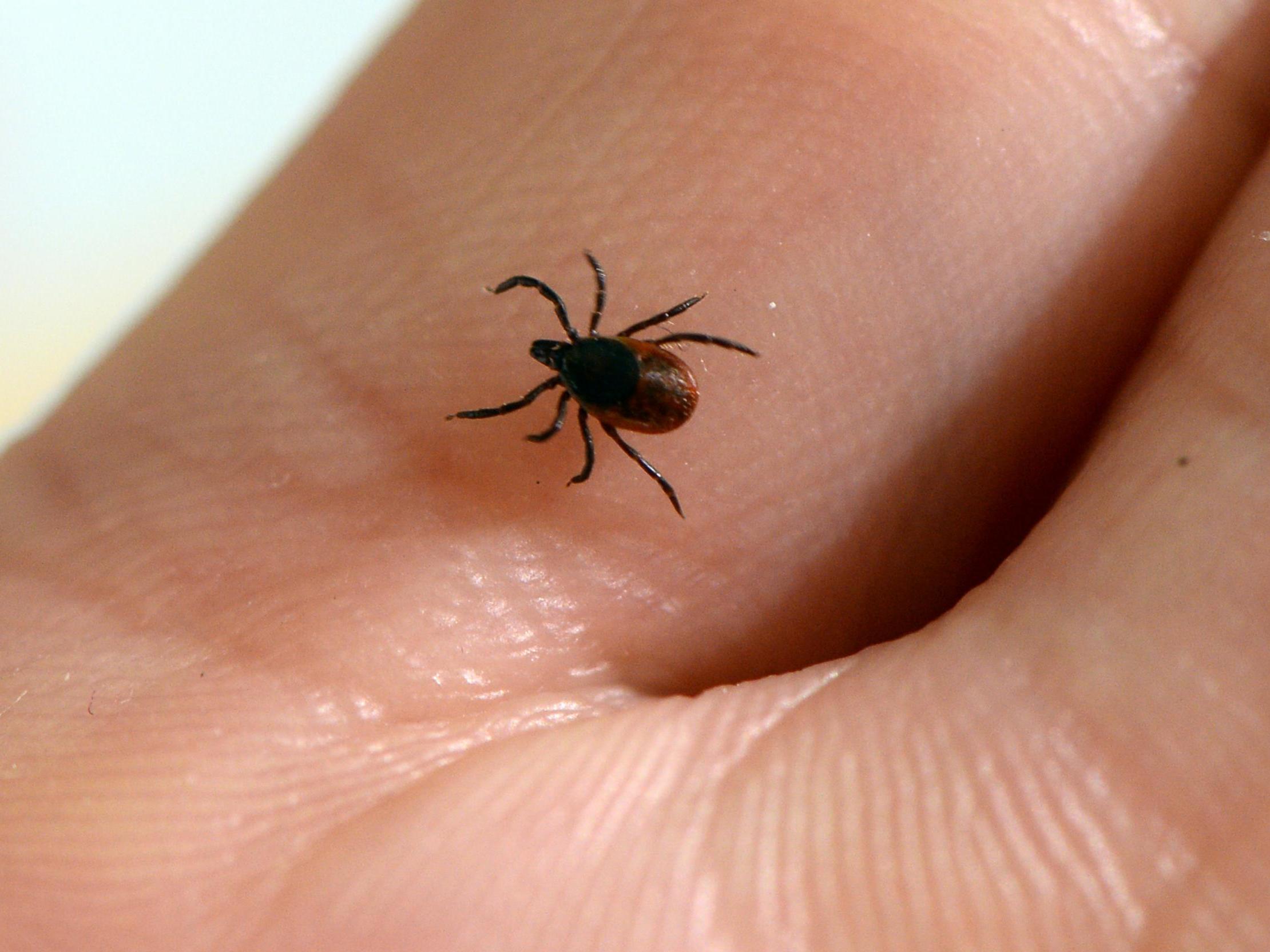Babesiosis: First UK case of deadly tick-borne disease discovered in England
Two people living on south coast hospitalised with rare infections

The UK’s first known case of a potentially deadly tick-borne disease has been confirmed in England.
It is caused by a small parasitic arachnid found across China and Europe, known as B venatorum, which scientists say was first detected in UK ticks in 2013.
While the parasite can cause a range of illnesses including Lyme disease, it is notable for causing two rare illnesses in particular — babesiosis and tick-borne encephalitis (TBE).
Two people who live along the south coast have now been hospitalised, with what Public Health England (PHE) says is the first record of a UK-acquired case of babesiosis, and a probable case of TBE, which would be the country’s second.
While the perceived risk to the public is “very low”, the government urged people to “be tick aware” and take precautions to reduce the risk of being bitten by ticks.
Both patients have been transferred to hospital, where they are receiving appropriate treatment and are expected to make a full recovery, PHE said in a statement.
Babesiosis is caused by a parasite that infects red blood cells, while TBE is a viral infection that affects the central nervous system.
Most people with babesiosis will have either no symptoms or mild symptoms of infection, but people with weakened immune systems can become very ill and present with flu-like symptoms such as fever, chills, muscle ache, fatigue, and jaundice.
Around two-thirds of people with TBE infections will have no symptoms, and, for those who develop symptoms, there are often two phases.
The first is associated with flu-like symptoms such as fever, headache and fatigue, which can then progress to a more serious second phase, which involves the central nervous system, which can lead to meningitis, encephalitis and paralysis.
With the parasite becoming increasingly common in the UK, thought to be largely a result of growing deer numbers, scientists are carefully monitoring its presence across Britain.
In 2019, researchers found it in a mammalian host for the first time — in sheep in the north of Scotland. A similar parasite, babesia canis, had previously been found in dogs.
This year, PHE has surveyed sites in Devon close to where the person hospitalised with babesiosis lives, collecting and testing hundreds of ticks. All tested negative for the parasite.
PHE also tested deer blood samples from Hampshire in areas near where the person with probable TBE lives and they have shown evidence of likely TBE virus infection, which matches similar results found in 2019.
The risk of babesiosis or TBE for the general public is very low, but a number of infections can develop following a tick bite, including Lyme disease, and there are things people can do to reduce the risk of being bitten by ticks.
PHE said it is important to “be tick aware” and take precautions such as keeping to footpaths and avoiding long grass, wearing appropriate clothing, considering the use of repellents containing Deet, and making it a habit to carry out a “tick check”.
If you have been bitten by a tick, it should be removed as soon as possible using fine-tipped tweezers or a tick removal tool.
“It is important to emphasise that cases of babesiosis and TBE in England are rare and the risk of being infected remains very low,” said Dr Katherine Russell, consultant in the emerging infections and zoonoses team at PHE.
“Lyme disease remains the most common tick-borne infection in England. Ticks are most active between spring and autumn, so it is sensible to take some precautions to avoid being bitten when enjoying the outdoors.
“Seek medical advice if you start to feel unwell after a tick bite.”
Additional reporting by PA
Join our commenting forum
Join thought-provoking conversations, follow other Independent readers and see their replies
Comments
Bookmark popover
Removed from bookmarks